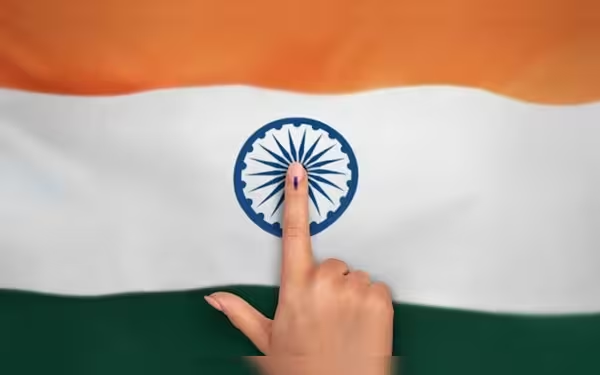Tuesday, July 2, 2024 03:20 PM
BJP's Challenges in Addressing Economic Disparities Revealed
- BJP's narrow victory in recent general election under scrutiny
- Modi government criticized for overlooking economic inequalities
- Voters prioritize job opportunities and basic needs over religious rhetoric
 Image Credits: asiatimes
Image Credits: asiatimesThe recent general election in India sheds light on BJP's struggle to address economic disparities and shifting voter priorities, emphasizing the need for inclusive policymaking.
India's ruling Bharatiya Janata Party (BJP) led by Prime Minister Narendra Modi recently experienced a closely contested general election. The BJP, aiming for a clear victory, is now on course for a narrow parliamentary majority as of June 4, 2024. To govern independently, the BJP needs 272 seats, otherwise relying on support from its coalition partners, the National Democratic Alliance.
The election outcome sheds light on the Modi government's oversight of economic disparities despite notable progress. India grapples with increasing inequality and persistent unemployment across rural and urban areas. Particularly alarming is the 44.49% unemployment rate among individuals aged 20 to 24, indicating a pressing issue that extends beyond national averages.
Moreover, Modi's emphasis on historical Hindu-Muslim tensions seems to have lost traction. While religious rhetoric was employed, voters shifted focus to pressing matters like job opportunities, housing, and basic needs. The BJP's oversight lies in neglecting the reality that in a country where only 11.3% of children receive adequate nutrition, appeals to Hindu pride fall short in addressing essential concerns like affordable goods.
This misinterpretation reflects a broader trend within the BJP, including figures like Yogi Adityanath, the state's chief minister. Adityanath, a prominent Hindu nationalist, failed to grasp the impact of his policies on marginalized groups, particularly Muslims and lower-caste individuals.
The recent general election in India has highlighted the BJP's challenges in addressing economic disparities and shifting voter priorities. As the political landscape evolves, it becomes evident that focusing on fundamental issues like employment and social welfare holds greater significance than religious rhetoric. Understanding the diverse needs of the population is crucial for effective governance and inclusive policymaking.













